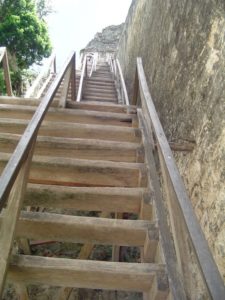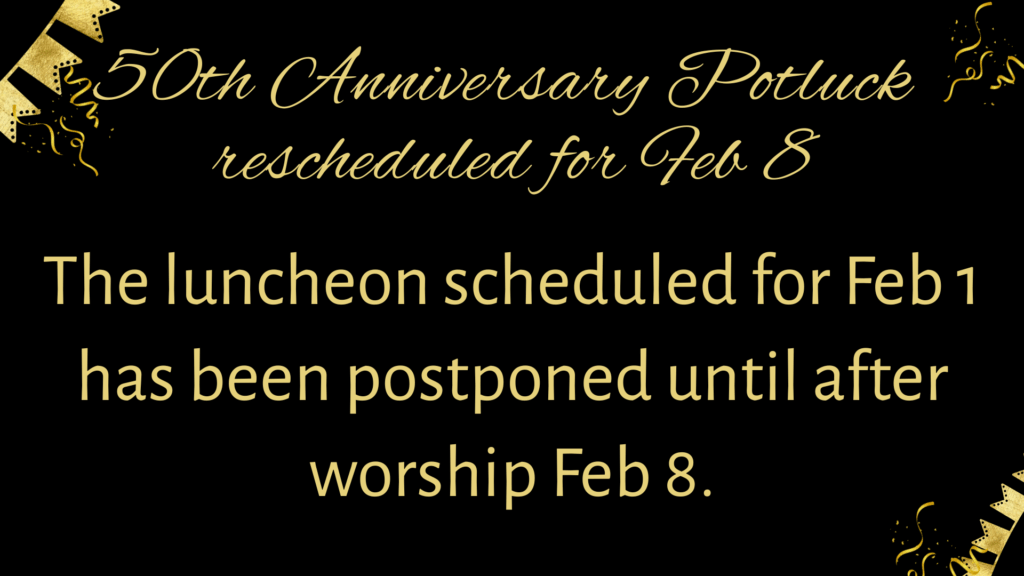How would you define “grace”? It’s a theological word we throw around often, particularly in our Reformed Presbyterian tradition. It’s used repeatedly in our scriptures. You hear it in both my opening words and closing benediction each week, in keeping with the traditional greetings and closings used by the Apostle Paul. Professor and theologian Rolf A. Jacobson offers this definition:
The free gift in which God gives everything—eternal life, forgiveness, purpose, meaning— to human beings, who respond by trying to earn it[i].
Grace is central to our understanding of salvation and who God is in relation to the world. It reminds us that we have a God who is merciful and slow to anger, who offers compassion and forgiveness instead of condemnation. Grace comes alongside love and is the means through which God accomplishes all things.
Throughout his letters to the early church Paul hones in on the importance of grace. Some of my favorite passages include those in Romans and the verses in Ephesians which we read a few moments ago. In Ephesians, Paul wishes to make it clear to the people that grace is a gift that brings us salvation. Our unity with God in Jesus Christ is not because of anything we have or have not done, our pedigree or geneology, or any particular turn of luck or accomplished skill. It is, as the reformers said, solo gratia, only grace that grants us this eternal status. Friends, this is good news. Because, as Paul also said in another letter, all of us have sinned and fall short of the grace of God. So, if you remember nothing else about grace, remember that it is a gift. It is not up to us to earn it; all we can do is respond to it.
These are the roots of the story John Newton, the author of the hymn Amazing Grace, who experienced grace in a dramatic way during a particularly stormy voyage in March of 1748. One night, a storm overtook the ship without any time to prepare, and Newton began to cry to the Lord. The next day, in great peril, he cried to the Lord. He later wrote, “That tenth of March is a day much remembered by me; and I have never suffered it to pass unnoticed since the year 1748 – the Lord came from on high and delivered me out of deep waters[ii].” Newton was the captain of a slave-trading ship, and for the next several years he continued, trying to justify his work by seeking to improve conditions as much as possible, even holding public worship services for his hardened crew of thirty each Sunday.
You may have noticed in the stories of hymn backgrounds this summer that many of the authors experienced some sort of conversions, or had nefarious pasts. In this way, they are in good company with many of our biblical heroes, whose stories often reveal less desirable aspects of their lives. I think these stories remind us of God’s incredible ability to do amazing things with even imperfect people. And perhaps, it’s these imperfect people, so aware of their shortcomings, who are able to be more fully aware of God’s grace and its role in their lives. One biblical example of this is King David, who moves in the biblical story from shepherd boy to king with a lot of questionable choices along the way. But rather than focus on this past history, 1 Chronicles tells the life of David through an encouraging lens, leaving out the stories of his personal sin and failure and life before he became king, and instead focusing on the accomplishments he left behind for future generations, including his central focus on worship.
First Chronicles was written for Israelites living centuries after David . . . to help them get in touch with what Israel had once been and could become again[iii].
In short, Chronicles was written to help orient God’s people to respond to God’s grace and mercy, using David’s awareness of it as inspiration. Our text from today comes following David’s interactions with the prophet Nathan, who has guided him in understanding what God would have him do next. David had offered to build a temple for God, but Nathan delivers the message that God has something else in mind. David responds with this earnest and heartfelt prayer that model him as a humble ruler even in his success. He accepts the news from Nathan with meekness and thanksgiving. Rather than boast in God’s grace, David chooses to be grateful.
For both King David and John Newton, responding to God’s grace is about gratitude. It is an awareness of all that God has done, is doing, and will do, and an earnest desire to set their own interests aside in following God. Both men offer powerful prayers of thanksgiving, and because of God’s grace are able to find a new way in which to live in gratitude. Grace prompts us to say “thanks” to God. Each week in worship we confess our sins, and are reminded of this grace, and we respond with a song of thanksgiving to God – giving to God all the glory of this moment.
Grace also prepares us for discipleship. As our text from Ephesians reminds us, we are what God has made us, and God indeed has made us for a purpose – for good works. When we are aware of God’s grace, and lead lives marked by gratitude, we naturally will extend that grace and love to others with our actions. This is the intersection of good works and grace. Good works are not the way to grace, but the natural response to lives aware of its presence.
For John Newton, it changed his entire life path. Despite his efforts to improve his slave-trading ships, after several years he felt convicted of the inhuman aspects of this work and left the seas for dry land. At age 39, he was ordained by the Anglican Church and began his first pastorate in the little village of Olney, near Cambridge, England. During this time, he grew tired of the same old rote hymns provided in the Psalter, and sought to write new hymns that provided straightforward messages about scripture in ways that people could connect to, and so he began to write his own. That’s right, John Newton was responsible for many newfangled hymns. He collaborated with his friend and neighbor, William Cowper, and together they published a collection of 349 hymns in the Olney Hymns hymnal in 1779, with 282 of them by Newton[iv].
Among those were six stanzas of a hymn titled “Faith’s Review and Expectation,” based on Newton’s study of 1 Chronicles 17. It is the hymn later set to an early American folk melody which we know by its opening stanza, Amazing Grace.
John Newton’s contribution to faith communities in Olney and these hymns are certainly an impressive example of the impact that a recognition of God’s grace can have on one man. But the more compelling part of the story for me is what happened next in Newton’s ministry. Because leading lives in response to God’s grace is about much more than becoming a minister and writing good hymns. In the case of John Newton, grace led him to take a stand for something far more important. It is captured on his tombstone, which he himself wrote:
“John Newton, clerk, once an infidel and Libertine, a servant of slavers in Africa, was, by the rich mercy of our Lord and Savior Jesus Christ, preserved, restored, pardoned, and appointed to preach the Faith he had long labored to destroy.”
After serving fifteen years in Olney, Newton became pastor of the influential St. Mary Woolnoth Church in London. During this period, he mentored several influential leaders and clergymen. Most notably, he established a strong relationship with William Wilberforce and other political leaders engaged in the crusade for the abolition of the slave trade. His experience as the captain of a slave-trading ship haunted him, but he also felt compelled by his experience of God’s grace to make changes for the good of the world. It is worth noting that the year of John Newton’s death, 1807, also marked the year the British Parliament finally abolished slavery through all its domain.
In 2006, the story of William Wilberforce’s crusade against the slave trade in the British Parliament was captured in a movie titled Amazing Grace. It is a compelling story about the struggles of leaders in the midst of tremendous changes, and it features several scenes in which Wilberforce engages with his mentor clergyman, John Newton. In one memorable scene, Newton notes the line from the hymn “was blind but now I see,” and notes the irony of how he, almost blind and late in life, had finally seen what was good and right all along, after years of being blind to the sins of which he was a part. Then Newton adds: “Although my memory’s fading, I remember two things very clearly. I’m a great sinner and Christ is a great Savior.” The driving force for him continued to be his faith and understanding of grace, and his willingness to do something with it.
The film also depicts William Wilberforce struggling with whether he should enter the ministry (like Newton) or go into politics. He makes a display in a card game after another player wagered a slave, returning to sing the first verse of Newton’s hymn. Later his friend, William Pitt urges him to make a decision, and asks him “do you intend to use your beautiful voice to praise the Lord – or to change the world?”
While I understand the set-up in the film, I don’t think such an answer is either/or. In fact, a life marked by grace demands that we do both – praise the Lord (show our gratitude) AND seek to change the world, joining in the work of God’s kingdom that we were created for through Jesus Christ. Grace can and should prompt us to good works, to actions that make a difference in the world – not for our own gain, but for God’s. In this way we become extensions of God’s gift of grace to others. This is the work of discipleship: becoming aware of God’s grace, giving thanks for it, and doing something because of it.
That is the work that our denomination’s General Assembly undertook this week, which you will hear about in more detail in just a few moments, and it is a challenge to all of us sitting here in the pews. Each week, we come together to celebrate God’s grace – through word, sacrament, prayers, and song. But it has to lead us somewhere, too. The book of James reminds us that “faith without works is dead.” The story of John Newton should, I think, inspire us to action. To root ourselves in an understanding of God’s love and mercy and reorient our lives in response. For him, that meant a total life shift and committing himself to a cause deeply grounded in a theology that we are all made equally in God’s image and should be treated in that way. This morning, I invite you to sing this hymn in praise to God, but also as a prayer asking for God’s guidance for the work that is yours to do, trusting that in word and song, the Holy Spirt can and will lead us into action. All because of a grace that is so amazing we cannot help but respond. Let us sing:
~Rev. Elizabeth Lovell Milford
June 24, 2018
————————————————————————————————————————
[i] Crazy Talk: A Not-So-Stuffy Dictionary of Theological Terms, Rolf A. Jacobson, editor, (p. 99). Fortress Press. Kindle Edition.
[ii] Robert J. Morgan, Then Sings My Soul: 150 of the World’s Greatest Hymn Stories, (Nashville, TN: W Publishing Group, 2011).
[iii] NRSV Student Bible
[iv] Kenneth W. Osbeck, 101 Hymn Stories: The Inspiring True Stories Behind 101 Favorite Hymns, (Grand Rapids, MI: Kregel Publications, 1982)








